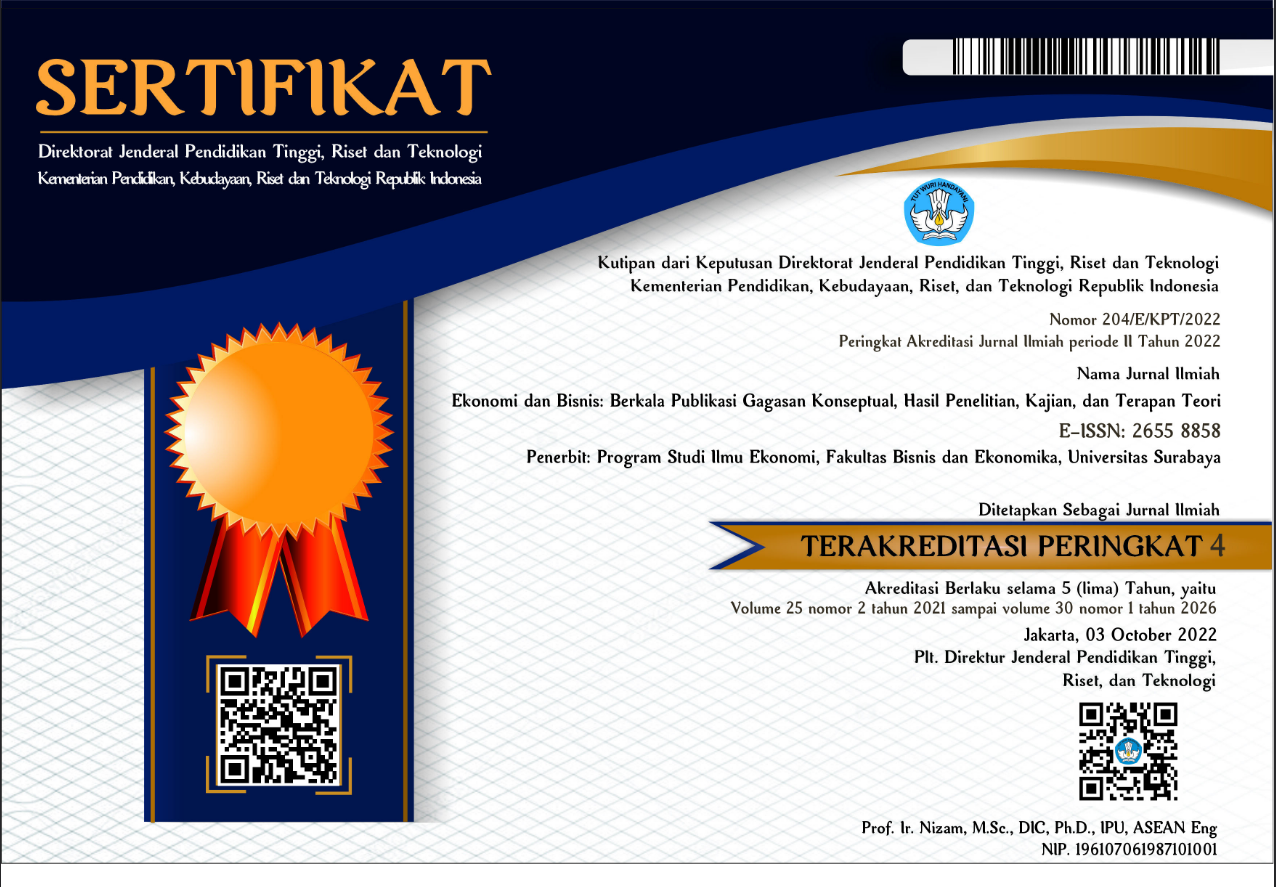ANALISIS EFISIENSI BELANJA PENDIDIKAN PADA PEMERINTAH DAERAH TERTINGGAL DI INDONESIA
 Abstract Views:
809 times
Abstract Views:
809 times
 PDF Downloads:
599 times
PDF Downloads:
599 times
Abstract
The efficiency of local government education spending is one of the strategies to increase regional financial capacity to fulfill the needs of basic facilities and infrastructure in underdeveloped areas. This study examined how the efficiency level of education expenditure in underdeveloped local governments in Indonesia in 2021 using the linear programming method of Data Analysis Envelopment (DEA) with Bootstrapping. Furthermore, a truncated regression analysis was conducted to scrutinize the factors impacting the efficiency of expenditure in underdeveloped local governments. The findings indicated that, on average, underdeveloped regencies need to heighten their efficiency by approximately 6.91% in terms of output enhancement to attain the utmost level of relative efficiency compared to the benchmarking Decision Making Units (DMU) in the analyzed regions, aimed at meeting fundamental educational requisites. The next conclusion was that of the five determinant variables observed, population density and the quality of planning and budgeting were proven to significantly affect the efficiency of education spending with a positive sign. In contrast, fiscal capacity had a significant effect with an opposite sign on expenditure efficiency. Other factors such as the open unemployment rate and political concentration statistically showed no significant results on expenditure efficiency.
Downloads

This work is licensed under a Creative Commons Attribution-ShareAlike 4.0 International License.

 DOI:
DOI:















